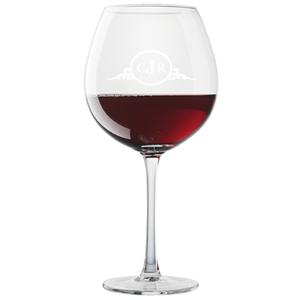I am often asked to conduct tastings or classes for people who want to learn more about wine –or at least gain a greater appreciation for it. And I often get some really great questions, things that people have wanted to know for years but have been afraid to ask. So, to help demystify wine, I’m going to answer some of the most frequently asked questions here…
Are ratings or wine scores a good guide to whether a wine will be good?
Think of wine ratings or scores like movie ratings. Sometimes they can be really subjective and inaccurate and sometimes they are spot-on. Absent any other information, they might be helpful to you when choosing between two similar wines on the shelf in the wine shop, but I like to say: form your own opinion and drink what you like.
Do I need a different glass for each type of wine?
No. Although you can invest in every type of wine glass from Riesling to Bordeaux, it’s not necessary when you are starting out. A basic white wine glass or an all-purpose wine glass is fine to begin with. Let your collection of glasses grow with your tastes and knowledge. The more advanced wine taster will notice how the shape of the glass improves the enjoyment of the wine, but if you are a novice, don’t stress yourself out trying to complete your set.
Can I leave my red wine at room temperature?
Actually, no. Red wines will benefit from a slight cooling-off. Room temperature here in the U.S. is typically too warm to really enjoy reds as they were intended. At home, pop your reds into the fridge for 15-20 minutes before serving.
Are screw caps OK?
Yes, in fact some winemakers think the metal screw cap is the ideal closure, ensuring that the wine gets to the consumer in the best condition. It is commonly thought that screw caps are good closures for everyday drinking wines, i.e., about 98 percent of the wine sold – what you will commonly find in the local wine shop and grocery store. But some believe that long, natural corks are the best closure for wine made to age. The natural cork allows the impartation of a certain amount of air into the wine. This is part of the aging process that gives aged wine its character.
What’s the best way to start learning about wine?
I always recommend that students taste different wines at every opportunity. It’s easy to find a wine you like and stick to that. However, you will never expand your knowledge and train your palate to detect different flavors that way. When you go to a restaurant, order a different glass of something or ask if you can taste several wines before settling on one.
Does a high price guarantee that I’ll like the wine?
No, a high retail price might be an indicator of quality or of the popularity of a wine. It has no bearing on whether you will like it. Don’t discount reasonably priced wines. There are some great buys out there.
How do I get wine stains off clothes?
Try pouring a small amount of rubbing alcohol on the stain, with a white cloth underneath to absorb the stain. If the stain remains, try mixing hydrogen peroxide and Dawn dish liquid into a solution and spot-cleaning with this.
What are wine clubs and should I join one?
Generally, there are two types of wine clubs. The first type is run by individual wineries. It allows their customers to buy directly from them through the mail, thus cutting out the middlemen. If you like a particular wine or winery, this is a good option for you. You sign up for their mailing list of releases and, as a club member, you usually get first dibs on purchasing the upcoming vintages. The other type of club is run by a wine merchant or a retailer. You pay a fee to have their selection of wines sent to you monthly or quarterly. This type of club is good for beginning wine drinkers who want to get broad exposure to wines and don’t know what they like yet.
I hope this clears up some of the questions you, too, might have had about wine, and gets you ready to embark on your next great wine experience. Cheers!
If you have more questions, follow me on Twitter: @sharisheffield


